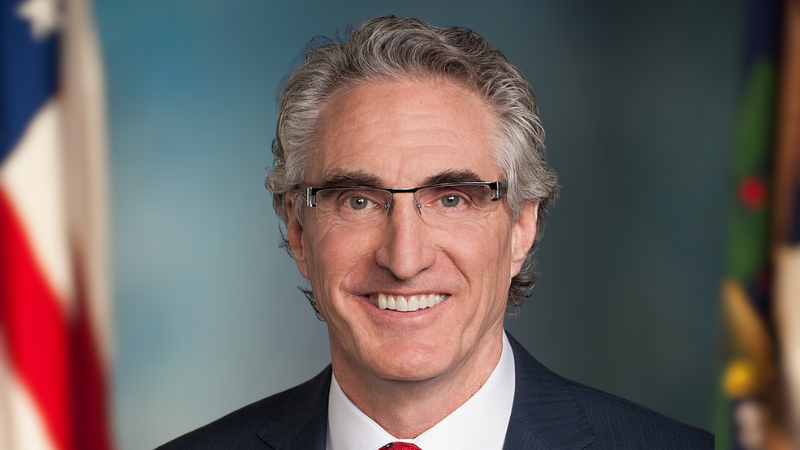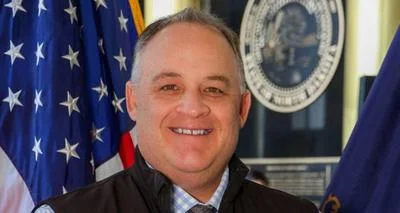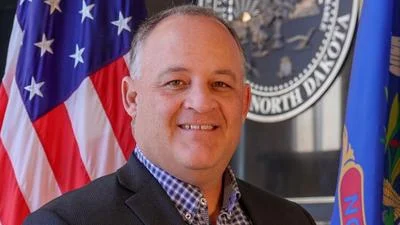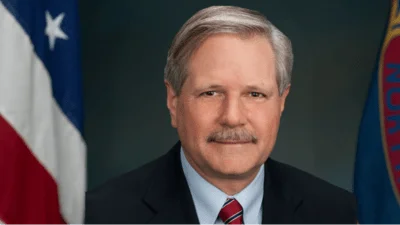State Governor Doug Burgum (ND) | State Governor Doug Burgum (ND) Official Website (https://www.governor.nd.gov)
State Governor Doug Burgum (ND) | State Governor Doug Burgum (ND) Official Website (https://www.governor.nd.gov)
BISMARCK, N.D. – Gov. Doug Burgum and First Lady Kathryn Burgum kicked off the fifth Strengthening Government to Government Partnerships and Relationships Conference, outlining progress made during the recent legislative session and beyond through collaboration between the state and the five sovereign tribal nations with whom North Dakota shares geography.
More than 400 people registered for the two-day conference, including tribal leaders and elders, state agency leaders and staff, statewide elected officials, local leaders, federal officials and legislators. The North Dakota Indian Affairs Commission office, led by Executive Director Nathan Davis, is hosting the conference at the Bismarck Event Center.
“North Dakota is fortunate that we’re small and nimble enough that no challenge seems insurmountable. I’ve seen this when we’ve worked together,” said the governor, who designated tribal engagement as one of his administration’s five strategic initiatives shortly after taking office in 2016. “We have incredible natural resources in this state. We’ve got a historic opportunity right now with all of these resources to really figure out a way to improve the lives of all North Dakotans. But it requires everyone to come to the table and listen with respect. And when you consider where we were 6½ years ago, we’ve come such a long way. But I’ve seen the challenges ahead of us, and we’ve got so much more to do.”
The first lady shared her personal story of addiction and recovery and noted that storytelling – a strong tradition in Native American culture – is among the most powerful tools for eliminating the shame and stigma surrounding the disease of addiction.
“I continue to find hope when I hear about the important work happening on your reservations. New treatment centers are being built, more services are provided, and more and more peer support specialists are being trained,” she said, noting that of the more than 800 peer support specialists trained in North Dakota, over 22% are Native American. “Addiction does not discriminate. … It can impact all of us. To truly uncover sustainable solutions for recovery and save lives, we can end the stigma of the disease of addiction through storytelling.” The first lady invited participants to attend the next Recovery Reinvented on Oct. 5 at Minot State University.
Lt. Gov. Tammy Miller also moderated a panel with students on empowering youth. Other conference topics included workforce, economic development, education, broadband access and supporting Native American artists, entrepreneurs and small business owners.
The governor shared his gratitude for the ongoing collaboration and partnership with the chairs of the five tribal nations: Chairman Mark Fox of the Mandan, Hidatsa and Arikara (MHA) Nation, Chairwoman Janet Alkire of the Standing Rock Sioux Tribe, Chairman Jamie Azure of the Turtle Mountain Band of Chippewa, Chairwoman Lonna Street of Spirit Lake Nation, and Chairman J. Garrett Renville of the Sisseton-Wahpeton Oyate.
During the afternoon session, Burgum and legislators were recognized for their work on HB 1536, which was introduced by Rep. Jayme Davis of Rolette, an enrolled member of the Turtle Mountain Band of Chippewa. The bill codified the federal Indian Child Welfare Act (ICWA) into North Dakota law as the U.S. Supreme Court was considering a lawsuit challenging ICWA. The bill ensured that extended family members and fellow tribal members would receive preference before non-native families when it comes to adoption and foster care of Native American children, regarding of how justices ruled on the lawsuit. The Supreme Court ultimately upheld ICWA in a ruling last week.
Burgum also highlighted additional progress made since last year’s conference:
- The Legislature passed and Burgum signed legislation that allows the State Water Commission to directly enter into agreements with tribal nations for a cost-share program that provides state funding for water development projects, including water supplies, flood protection and other general water management efforts, rather than having to go through an eligible non-tribal partner.
- Burgum also signed legislation allowing each tribal nation to enter into a tax-sharing agreement with the state on alcoholic beverages sold at the retail and wholesale levels within their respective reservations. Tribal nations that adopt the alcohol tax will keep 80% of the tax revenue, while the state’s general fund will receive 20%. The bill creates a fair and uniform framework for taxing alcohol on reservations while ensuring the bulk of the revenue goes to the tribes to support addiction treatment and other programs.
- The Native American scholarship was nearly doubled to $1 million, and grants to tribally controlled community colleges were increased to $1.4 million through legislation.
- Burgum signed legislation allowing North Dakota Information Technology to provide IT and cybersecurity services to tribal schools and colleges that want the services.
- Additional legislation will support recovery services, including grants for 10-bed inpatient behavioral health services in Dickinson and Williston, expansion of the Recovery Housing Program and Community Connect program, and $15 million to fully fund the Free Through Recovery program designed to increase recovery support services for individuals involved with the criminal justice system.
Original source can be found here.





 Alerts Sign-up
Alerts Sign-up